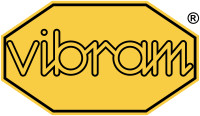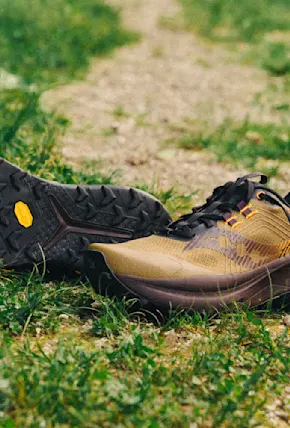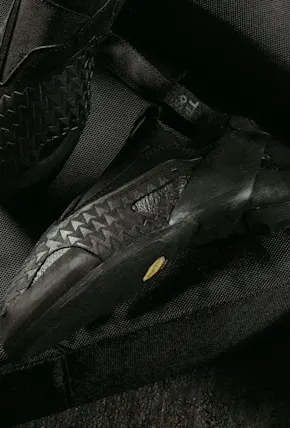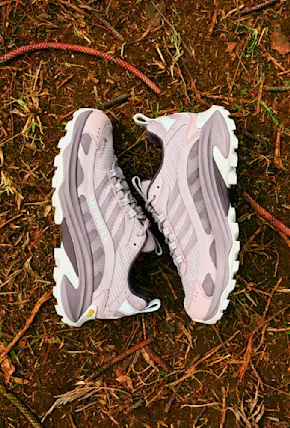This article is the latest in an ongoing series of deep dives into past, present, and future icons called Sole Searching, made in partnership with Vibram. Earlier features outline the founding history of Bedrock Sandals, how the Norda 005 launched as the ultimate shoe for trail races, and more.
The modern history of running shoes may have started with a waffle iron, but it might as well be discussed in B.H. and A.H.—that’s before HOKA and after. In the decade since the first HOKA shoes were introduced, inspired by powder skis and mountain bike tires and made for running down peaks in the French Alps, the ubiquitous thick sole has changed the entire footwear industry. But proof of the original Hoka idea is still easy to find at HOKA—just look at the Speedgoat. With a high-stack midsole and grippy Vibram outsole, the lightweight Speedgoat is exactly the shoe those first protos set out to be.
That first Speedgoat was the result of a collaboration between HOKA and trail runner Karl Meltzer, the brand’s first sponsored athlete. Nicknamed "Speedgoat," Meltzer has won more 100-mile races than any other ultrarunner and even set a speed record for the Appalachian Trail (subsequently broken).
Now seven years after Metlzer’s namesake design was initially released in 2017, the lightweight Speedgoat 6 continues to be a standout favorite among trail runners worldwide. It’s loaded with all the latest tech, including an all-new upper and midsole, and research-driven adjustments to the Vibram outsole's lug pattern. "We modified the spacing and angles of the lugs to optimize their placement for better traction and debris evacuation," says Daniel Yorba, senior designer at Vibram. Simply put, if the first Speedgoat was the product of the novel ideas, it is incremental adjustments and proven data that has created the Speedgoat 6.









